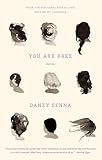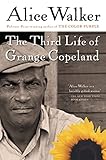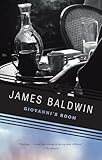I read and loved a book called The Disordered Cosmos by Chanda Prescod Weinstein. My physics major daughter has recently taken an interest in quantum mechanics, and I can’t think of any better father/daughter activity than contemplating the scientific mysteries of reality together, wondering if this is real or a projection made by quantum tricks of light. Not that it matters, but it kind of matters. I guess what I’m saying is I need help to live, and knowing that I’m not alive, but maybe only perceiving myself to be alive is kind of a relief. Somehow, not being alive makes it easier to live. Maybe that’s because it helps you feel free.
 I read Danzy Senna’s collection You Are Free after finding it in the back of a secondhand shop in Oakland. Her short stories are about people’s struggle to be free, usually by doing objectively terrible things. I like that her writing is more exploratory than prescriptive, more perilous than delicate. Maybe this is becoming a lost art. Let’s bring it back.
I read Danzy Senna’s collection You Are Free after finding it in the back of a secondhand shop in Oakland. Her short stories are about people’s struggle to be free, usually by doing objectively terrible things. I like that her writing is more exploratory than prescriptive, more perilous than delicate. Maybe this is becoming a lost art. Let’s bring it back.
 Speaking of people doing terrible things, I tore through a copy of Alice Walker’s 1970 novel The Third Life of Grange Copeland that I got from the Radical Hood Library in LA. I loved the book so much that I sent it back to them wrapped in protective plastic. She writes ugly so beautifully and does not seem to be afraid of death, which I think is a quality all good writers must have. This book is weird and very old feeling, but also kind of remarkable. I can’t figure out if the scale is big or small, but it’s very human, so I suppose it’s both.
Speaking of people doing terrible things, I tore through a copy of Alice Walker’s 1970 novel The Third Life of Grange Copeland that I got from the Radical Hood Library in LA. I loved the book so much that I sent it back to them wrapped in protective plastic. She writes ugly so beautifully and does not seem to be afraid of death, which I think is a quality all good writers must have. This book is weird and very old feeling, but also kind of remarkable. I can’t figure out if the scale is big or small, but it’s very human, so I suppose it’s both.
 I rarely read new books anyway because there are so many old books to read. There are so many books to read, period, I mean how can I ever be free with all these unread works taunting me? My friend Bret brought me a copy of Giovanni’s Room from Shakespeare and company in Paris as a gift to celebrate the publication of my memoir. I was moved. It’s a book you can fit in your pocket which is important because what if you have to leave? I was struck by how Baldwin meets the technical challenge of wrenching high stakes out of a story where, for the most part, people are just hanging out.
I rarely read new books anyway because there are so many old books to read. There are so many books to read, period, I mean how can I ever be free with all these unread works taunting me? My friend Bret brought me a copy of Giovanni’s Room from Shakespeare and company in Paris as a gift to celebrate the publication of my memoir. I was moved. It’s a book you can fit in your pocket which is important because what if you have to leave? I was struck by how Baldwin meets the technical challenge of wrenching high stakes out of a story where, for the most part, people are just hanging out.
 I also read Gabriel García Márquez‘s posthumously published novel Until August, a book he abandoned because in his words it “simply does not work.” His “does not work” would be most writers’ “greatest achievement,” particularly on a sentence and paragraph level. Sure, the ending feels a little naked and perhaps asymmetrical, but I am clearly not a good enough writer to have any idea what the hell this man was talking about when he said it “does not work.”
I also read Gabriel García Márquez‘s posthumously published novel Until August, a book he abandoned because in his words it “simply does not work.” His “does not work” would be most writers’ “greatest achievement,” particularly on a sentence and paragraph level. Sure, the ending feels a little naked and perhaps asymmetrical, but I am clearly not a good enough writer to have any idea what the hell this man was talking about when he said it “does not work.”
 I’m definitely no Márquez but I also spent a fair bit of time reading Another Word For Love which is my own book and I recommend it to you too. But you don’t have to read it if you don’t want. After all, life is a perception and therefore you are free.
I’m definitely no Márquez but I also spent a fair bit of time reading Another Word For Love which is my own book and I recommend it to you too. But you don’t have to read it if you don’t want. After all, life is a perception and therefore you are free.

